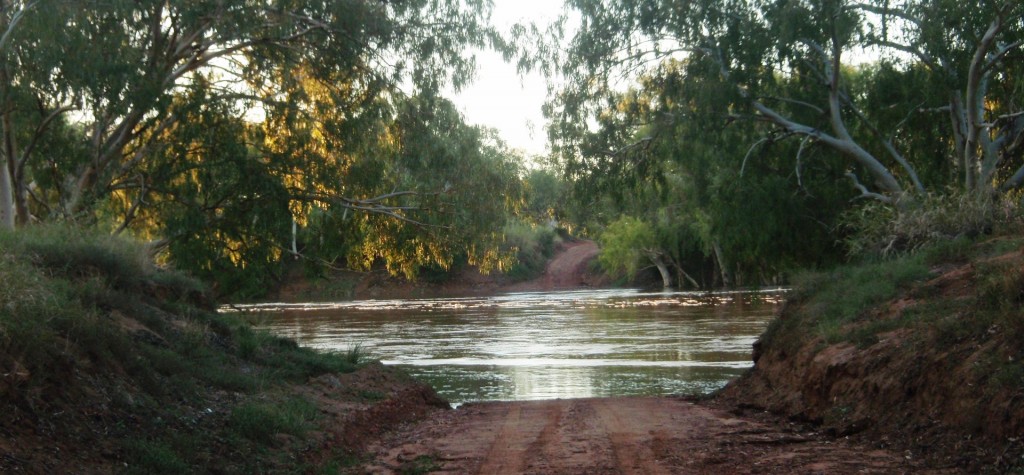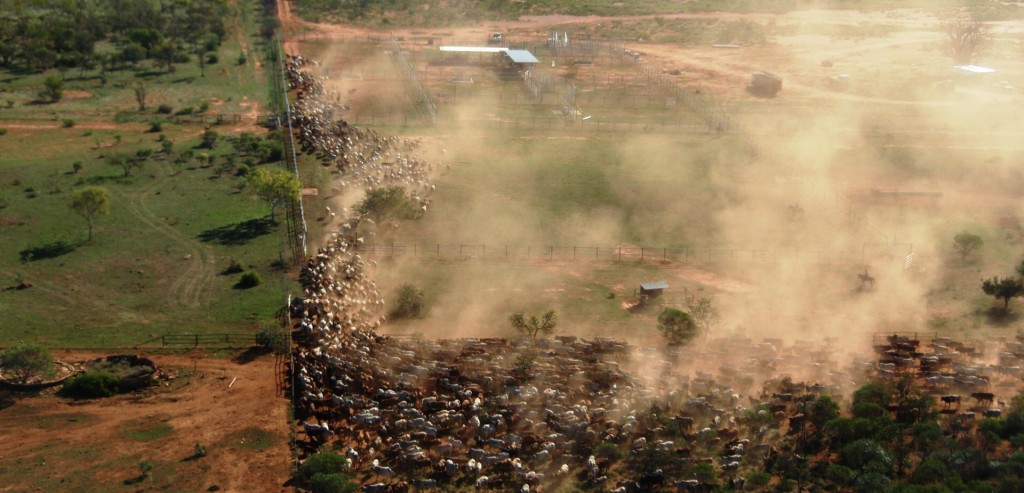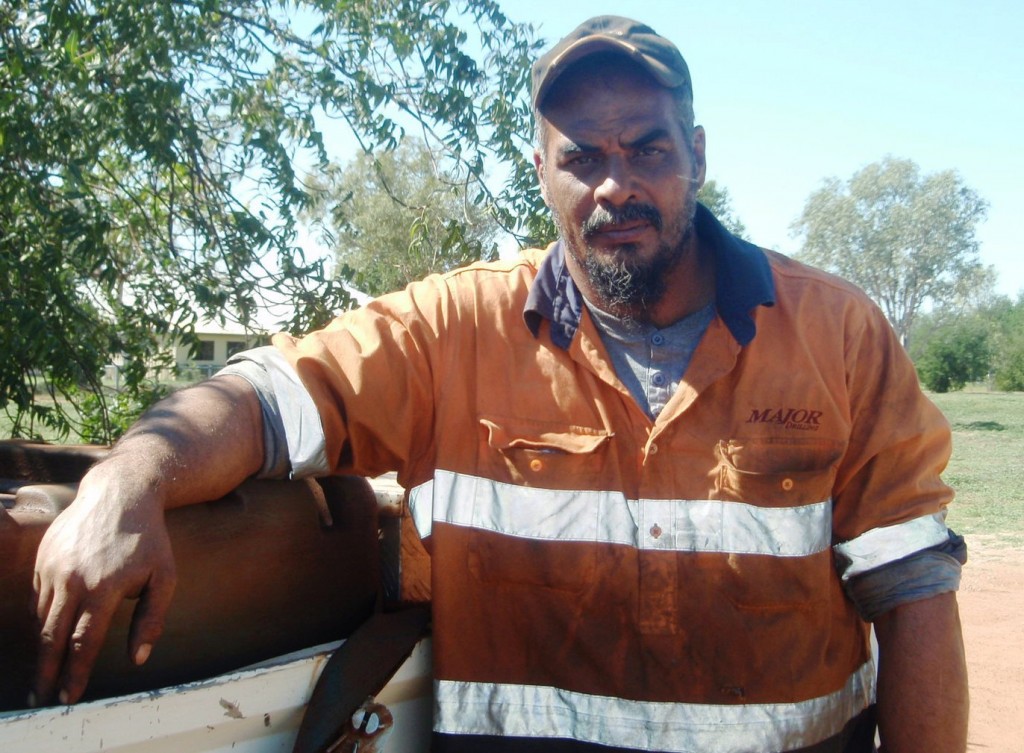The “busy” season
Host: Myroodah Station
Written by Pam Daniell – Manager, Myroodah Station.
 Flooded Myroodah crossing over Fitzroy River – our main access in to the Station.
Flooded Myroodah crossing over Fitzroy River – our main access in to the Station.
Properties in the north of Australia have two distinct seasons – the “Wet” and the “Dry”. The season that most station managers will tell you they enjoy most is the “Wet”. This is from about Christmas time through to Easter when operations take on a quieter existence due to hopefully a whole lot of rain falling between these two events.
The wet season is generally when staff numbers are at a minimum and hopefully the cattle are grazing in their paddocks very happily with plenty of green grass and surface water from the rain. It is also when cash flow dramatically reduces for the business as cattle cannot be moved off most properties due to wet roads and limited access. The work continues during the wetter months but is more in the form of steady maintenance jobs that we don’t get time for during the year.

The “Dry” season is the busy season. This is when the staff return and the work begins. The initial work involves checking and repairing fences and re-building those washed away by the flow of water in creeks and low lying areas during the “Wet”. The horses are run in and shoes are put on them ready for the work ahead. The horses are also sorted to suit the level of horse-riding experience of the stock men so each has a few to call their own for the season.
With the initial preparations in progress, the mustering program is planned (and often re-planned several times) and then gets underway. On Myroodah we use helicopters to assist bringing cattle together in a paddock. The horseman will then take over as much as possible and walk the mob in to the cattle yards ready to be sorted out or “drafted”. This work continues throughout the year and while the stock men are busy handling the cattle work, there is another role on the station that is considered one of the most important.

Meet Daniel Hughes. He is the “Boreman”. Dan is reliable and hard-working: a boreman without these two qualities transpires to a station manager with many more grey hairs and sleepless nights than required! Dan’s job is to ensure the 23,000 or so head of cattle on Myroodah have clean, fresh water to drink every day. During the dry season temperatures soar well above 40 degrees Celsius, particularly in October through to December. Natural surface water too, by the end of the year is limited, so it is a busy job travelling across the property checking and cleaning troughs, starting bore motors to fill tanks and making many pipeline repairs along the way. Down-time for the boreman during the “Dry” is scarce as the livelihoods of the cattle rely heavily on this one position. The boreman is imperative to the success of the cattle station.
Daniel’s father is from the Torres Strait Islands but Dan was born in Subiaco (Perth) and has spent the majority of his life so far in Western Australia. He has had a wide and varied working career starting at about age 12 with his first job as a plasterers offsider in York, east of Perth. His initial experiences of station life were in his mid-teens when he first became a rouseabout working his way up to shearing on sheep stations around Kalgoorlie and Laverton.
He ventured further north and eventually found himself on Lissadell Station near Kununurra working with cattle as a Jackaroo. Dan said the cattle work was good fun “if I could ever stay on my horse!”. With positions on Mabel and Bedford Downs in the Kimberley Region, Dan gained experience with bores and water systems, mostly working with windmills back then. With several years working in the mines operating a variety of heavy machines and over six years doing military work for Norforce in the Australian Reserve Unit, Dan now finds himself back in the bush. Dan said the best part of his job is working independently. He enjoys the isolation and being out in the bush every day as he drives around his bore runs. He enjoys Myroodah and says it has a nice feel to it; “from the first time I drove in for the job, it felt like home”.
